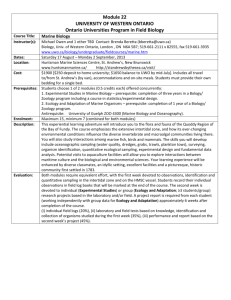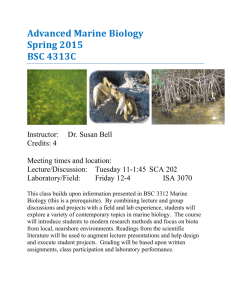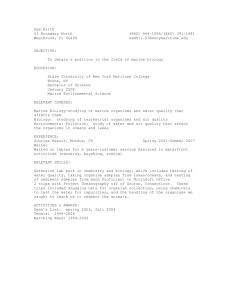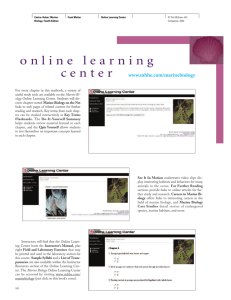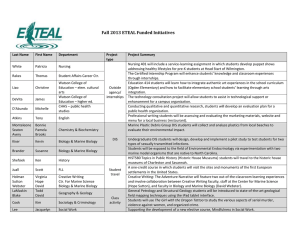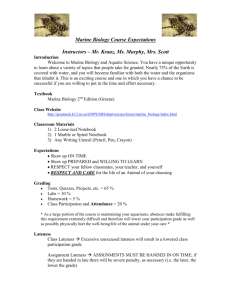UNIVERSITY OF WESTERN ONTARIO Ontario Universities Program
advertisement
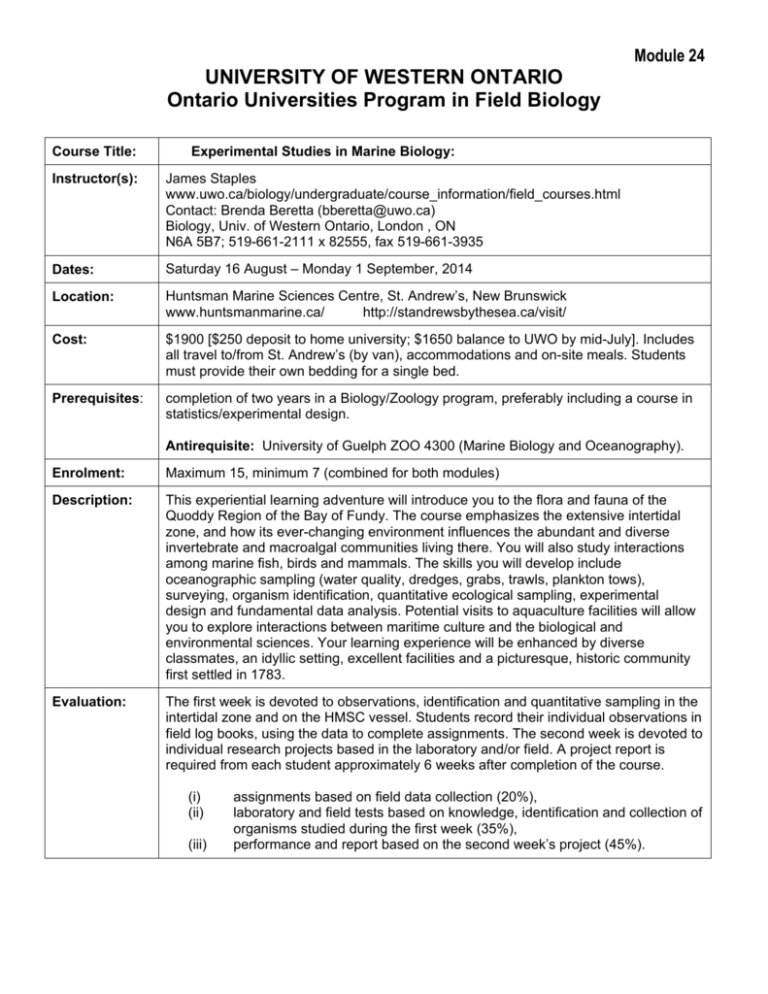
Module 24 UNIVERSITY OF WESTERN ONTARIO Ontario Universities Program in Field Biology Course Title: Experimental Studies in Marine Biology: Instructor(s): James Staples www.uwo.ca/biology/undergraduate/course_information/field_courses.html Contact: Brenda Beretta (bberetta@uwo.ca) Biology, Univ. of Western Ontario, London , ON N6A 5B7; 519-661-2111 x 82555, fax 519-661-3935 Dates: Saturday 16 August – Monday 1 September, 2014 Location: Huntsman Marine Sciences Centre, St. Andrew’s, New Brunswick www.huntsmanmarine.ca/ http://standrewsbythesea.ca/visit/ Cost: $1900 [$250 deposit to home university; $1650 balance to UWO by mid-July]. Includes all travel to/from St. Andrew’s (by van), accommodations and on-site meals. Students must provide their own bedding for a single bed. Prerequisites: completion of two years in a Biology/Zoology program, preferably including a course in statistics/experimental design. Antirequisite: University of Guelph ZOO 4300 (Marine Biology and Oceanography). Enrolment: Maximum 15, minimum 7 (combined for both modules) Description: This experiential learning adventure will introduce you to the flora and fauna of the Quoddy Region of the Bay of Fundy. The course emphasizes the extensive intertidal zone, and how its ever-changing environment influences the abundant and diverse invertebrate and macroalgal communities living there. You will also study interactions among marine fish, birds and mammals. The skills you will develop include oceanographic sampling (water quality, dredges, grabs, trawls, plankton tows), surveying, organism identification, quantitative ecological sampling, experimental design and fundamental data analysis. Potential visits to aquaculture facilities will allow you to explore interactions between maritime culture and the biological and environmental sciences. Your learning experience will be enhanced by diverse classmates, an idyllic setting, excellent facilities and a picturesque, historic community first settled in 1783. Evaluation: The first week is devoted to observations, identification and quantitative sampling in the intertidal zone and on the HMSC vessel. Students record their individual observations in field log books, using the data to complete assignments. The second week is devoted to individual research projects based in the laboratory and/or field. A project report is required from each student approximately 6 weeks after completion of the course. (i) (ii) (iii) assignments based on field data collection (20%), laboratory and field tests based on knowledge, identification and collection of organisms studied during the first week (35%), performance and report based on the second week’s project (45%).
